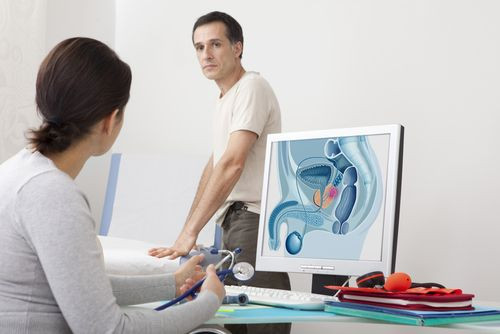Colonoscopy Overuse A Result Of Frequent Follow-Up Screening Recommendations From Endoscopists

Colonoscopy is a lifesaving procedure for detecting a colorectal cancer, the third leading cause of cancer-related deaths in America. Regular screening has seen the death rate due to this condition dropping in the past two decades. But in recent years, as in all imaging and diagnostics, colonoscopy has seen an overuse. This was recently demonstrated by a retrospective study led by Brigham and Women's Hospital (BWH) researchers. The study showed that endoscopists routinely recommended shorter follow-up intervals than established guidelines support, and these recommendations were strongly correlated with subsequent colonoscopy overuse.
"Our study shows that a high percentage of follow-up colonoscopies are being performed too early, resulting in use of scarce health care resources with potentially limited clinical benefit," said lead author Thomas D. Sequist in a statement. The study has been published in the Journal of General Internal Medicine.
The study was based on the electronic health records of 1,429 patients who underwent their first colonoscopy screening between 2001 and 2010. The age of the patients at that time was between 50 to 65 years old. The records showed that an additional 871 follow-up colonoscopies were conducted on these patients as part of a median follow-up of six years.
According to the researchers, 88 percent of follow-up screening colonoscopies and 49 percent of surveillance colonoscopies repeated during the study represented overuse, which means they were performed more than one year early, and in many cases three to four years earlier than is recommended by national guidelines. Conversely, patients who were identified as high risk in the first colonoscopy findings did not receive follow-up screenings within the recommended three- or five-year time period.
The researchers found that early follow-up colonoscopy was recommended by endoscopists in more than half of the cases, and this led to colonoscopy overuse. Patients were 13 times more likely to have an early colonoscopy when their endoscopist recommended such follow-up.
"Previous research has shown that most endoscopists do not consistently agree with the follow-up intervals recommended in national guidelines and report preferences for shorter screening and surveillance intervals," Sequist said. "Examining practice variation and establishing locally endorsed standards among endoscopists may be a way to target interventions to reduce overuse."
Getting to the bottom of why colonoscopy may be overused, Sequist says it could be due to fear of poor prognosis or malpractice, disagreement with current guidelines, or for misappropriate financial gain.
"The overused colonoscopies on the patients in this study alone represent a potential excess of over $1 million in health care spending — resources that might benefit those who are overdue for colon cancer screening," coauthor Gina Kruse said.
Overuse of screening and imaging practices largely contributes to the already huge health care costs that America incurs. National programs such as the Choosing Wisely campaign by the American Board of Internal Medicine Foundation and the American Gastroenterological Association aim to educate and encourage physicians about the dangers of unnecessary screening.
Source: Sequist T, Kruse G. Journal of General Internal Medicine. 2014.



























